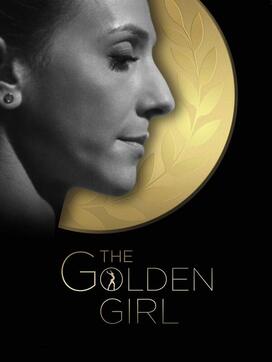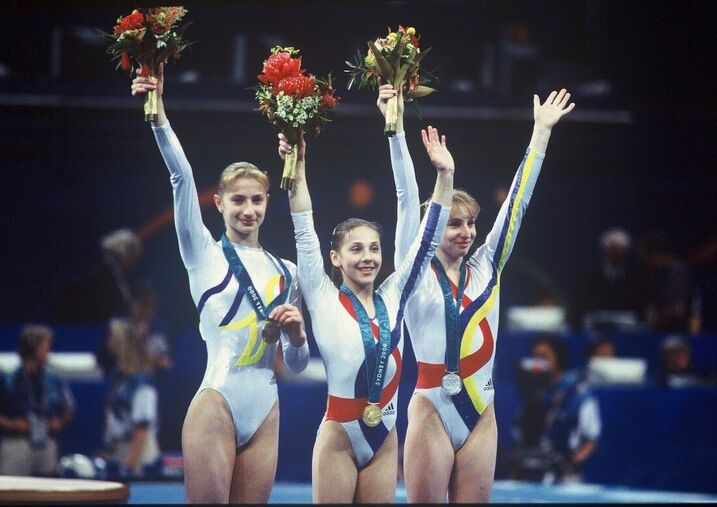Revisiting a Turbulent Olympic Gymnastics Moment
A Quick Film Review
"I think they forgot it already. Because they are children and they forget and forgive easily." So says Octavian Bellu, coach of Romania's women's gymnastics upon the team's return to Bucharest after an eventful competition at Sydney 2000.
He's talking about the controversial disqualification of star Andreea Raducan's individual all-around win at the Games. But, as The Golden Girl shows, to "forget and forgive" is often an elusive target.

Women's gymnastics at the Sydney was, as always, a highlight focus of Games coverage. And the tournament certainly provided drama. Romania, with Raducan and fellow star Simona Amanar, won the gold in the team competition ahead of Russia - the first time that they bested their nemesis in Olympic competition. The next event, the individual all-around, was marred by an incorrect setting of the vault, resulting in a number of competitors unknowingly approaching the equipment and unable to adjust their attempts. Falls aplenty, and, although, affected gymnasts were offered do-overs, the damage was done to the field's psyche. In the end, more precedent: Raducan led an unprecedented Romanian 1-2-3 podium sweep with Amanar and Maria Olaru. Or did she?
Turns out, ahead of the day's competition, team doctor Ioachim Oana inadvertently gave Raducan a pseudoephedrine tablet, at the time being a banned substance, for headache relief. Raducan then tested positive at routine drug testing, and her win was invalidated.
She did compete in the event apparatus finals, though, winning a silver medal. And after Sydney, she received a hero's welcome, and then some. She competed at the World Championships, winning five medals the next year. And her career post-gymnastics wasn't exactly thwarted, either - as shown in the film, she rose to president of the national federation.
Cut to 2015 and Raducan is on a mission to right a wrong. Armed with the wide acknowledgement that she was an innocent victim, she wants her title. She visits gymnastics legends Nadia Comaneci and Bart Connor, and a member of the IOC's medical commission at the time, and her own team's ill-fated doctor, all of whom lend a sympathetic ear.
But, what gives? It's "a part of my life that is still very present....I miss the title", she pronounces early in the film. And the film struggles to show the impetus to her efforts. Why hadn't she attempted such a reinstatement earlier? There were drug testing abnormalities, particularly discrepancies in her urine sample amount, that could have been re-addressed. Were they? She acknowledges the Court of Arbitration for Sport has a ten-year limit on appeals. So why now? There's an air of bitterness from the start. Elite sport is littered with stories of unfortunate injustice; just ask those poor gymnasts who didn't recover from that incorrect vault. Don't they deserve, I don't know, something?
We're witness to a session of Raducan with a therapist, who is also skeptical. "The more you want to do it, the more your life will be diverted from its normal course...if you do it for the sake of doing it, it will turn out badly".
The Golden Girl ends with a return to that whiff of bitterness, as the directors aim at Amanar, who was elevated to the gold medal upon Raducan's DQ. Why did she accept the gold and not reject it, is pointedly and tensely asked. If Raducan was an innocent victim, then so could be Amanar, a teenager as well at the time. Are we to expect her to belatedly have handled the difficult situation differently? Surely Romanian team officials had a say, no?
In the end, there are more questions than resolutions in The Golden Girl. But in between, we are treated to fascinating glimpses of life in training camp, and interviews with her mother, underscoring the sacrifices an elite athlete's family makes toward elite goals. And, for an Olympics fan, it's a strong reminder of those heavy days in Sydney.



 RSS Feed
RSS Feed